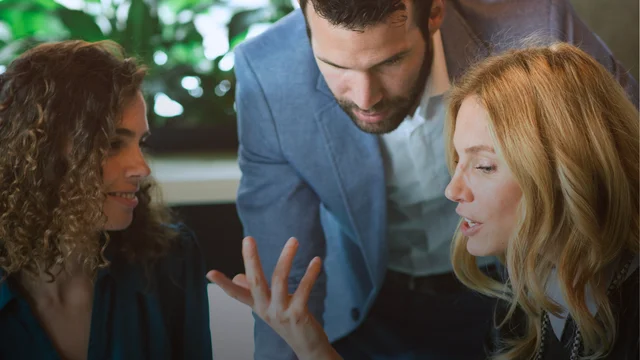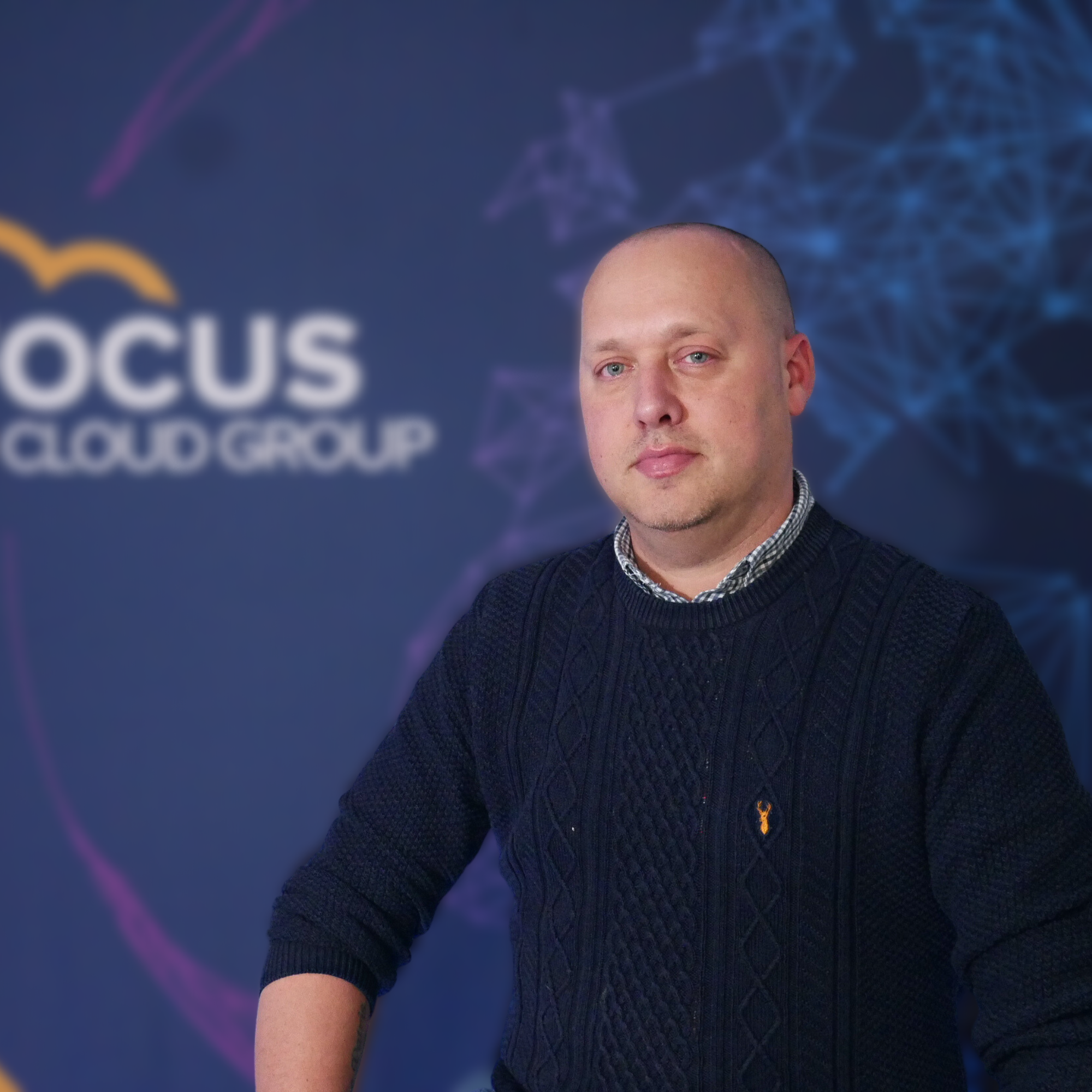
So, you got an interview. Congratulations! The day comes, you’ve prepped as much as possible, you feel like you’ve aced it, you’ve built a rapport with your interviewer, you’ve even managed to get a few smiles and laughs out of them. You think ‘yes, it’s in the bag’. And then…
Your interviewer asks ‘do you have any questions?’.
Your mind goes blank, you’ve only got the generic ones, and nothing that relates to the organisation you’ve just interviewed with. You’ve also already covered what you wanted to ask about during the interview. You might still get the role, and leave a good enough impression, but why take that chance?
If you don’t ask the right questions at the end of an interview for a Workday® role, you’re missing opportunities to further convince your interviewer to make you an offer, and work out whether this role and organisation are the right fit for you.
Focus on WD have got you covered. Here are the best questions to ask at the end of your Workday® interview. Not all will be relevant for the role you’re going for, and you’ll probably have some of them answered during the interview itself, but that’s why it’s good to have a few options prepared…
"What does the Workday® roadmap look like for your organisation?"
This is likely to have come up already, but you might have only covered what the road map would look like for you in your new role, or the team you will be working in. Broadening the question can help raise a discussion about how the organisation currently uses Workday®, and the potential to implement other Workday® products, and what this would help the organisation achieve.
You’ll be giving yourself the opportunity to display your knowledge of all things Workday®, including multiple modules and implementation projects, and how you’d be a great asset to the company going forward. If you present yourself as a good investment not just for now, but for the future, you’ll separate yourself from other candidates.
You’ll also identify how your job role might look further down the line, and this will help you decide if there will be enough variation and progression to keep you interested.
"How will/does Workday® fit into the business goals of the organisation?"
You’re looking to learn more about the organisation, and the role of Workday® within it. You can also narrow this down to how the team you will be working in has formed their goals, and the place you’ll have within the company. Do the goals of the business/team interest you and ignite a passion, if this is what you’re looking for in a new role? Is what they aim to achieve possible? Or alternatively, are they setting the bar too low? If you want a role that involves big transformations and making a difference to an organisation, will this role offer you that chance?
This is another opportunity to show that you know your stuff. You can pull from past experiences of how your Workday® skills have helped a business achieve a desired outcome. Many organisations want to see that it’s not just your technical skills that are right for the role, but you also have an understanding of business requirements, and how this translates into Workday®. Here’s your opportunity to show your interest in this area.

"What does your implementation/post-implementation Workday® team look like?"
If this hasn’t been covered already, it’s definitely an important one for you. If you are joining an implementation project, understanding the resources that will be available on your team will give you a good understanding of what your experience in this prospective role might be like. You might need to know what the post-implementation team looks like for similar reasons.
Are they just employing contractors, or are they building a strong, permanent, in-house team? Which departments do the HR/Finance teams sit within? Will you be under the HR or the Technology umbrella? Depending on your preference, this could reveal a lot about whether this is a role you’re going to enjoy, or if it will be littered with challenges you want to avoid.
Additionally, showing attention to detail in this area tells your interviewer that you are a team player, and that you understand that organisation and team configuration makes a huge difference to a company and its business outcomes.
"What are your plans for supporting Workday® certifications and development?"
We all know how hard it can be to get Workday® certified. You can’t just go online and enrol in a course. You need to gain access through an approved training vendor. So, if you haven’t covered this already, it’s definitely worth asking.
You might have spoken about this in the interview, but want to get a little more detail. What are the plans for this long-term? You might have been told the initial plans for gaining certifications when you first join an organisation, but will this be continued throughout your tenure? Will you be supported in maintaining certifications you already have? Whether you have no Workday® certifications, or want to continue to gain them to progress your career, it’s important to understand what the organisation is prepared to offer you.
Asking this question also shows that you are committed to your own personal development, and how you can continue to advance your own skills in order to benefit the company.
"What changes have you seen since implementing Workday®?"
If this question is relevant (i.e. you’re joining post-implementation), the answer you get could give you some good insight into the functionality of, and level of engagement with, Workday® within the organisation. This will help you gauge whether Workday® is being leveraged to its full potential, and might highlight any issues you’d be better off knowing about now.
All of this might offer you a better picture of what to expect from this role and organisation, and also shows the interviewer that you’re interested in their journey with Workday® up to this point.
"What are your biggest pain points?"
This might seem like quite a negative question, but bear with us because it’s an important one. Whether you ask this as a general question (‘What are your biggest pain points as an organisation?’), specific to a role, such as implementation (‘What are your biggest pain points with your legacy system?), or specific to Workday® (‘What are your biggest pain points with Workday®?’), it’s worth throwing it in there.
The answer to this question will be very revealing, and probably shape your decision as to whether you take the role when it’s offered. You might find that you see a lot of red flags as a result of asking this, and feel like you dodged a bullet. Perhaps you’ll be pleasantly surprised, and the pain points you hear here are all fixable and not deal breakers for you. Most of the time, you’ll find that the pain points are similar to ones you’ve experienced before.
This is a golden opportunity to spark a discussion in which you can present yourself as a great prospect for the organisation. You ask about pain points, the interviewer starts telling you about them. You find you have some interesting views and solutions on these challenges that you then have an interesting discussion about with your interviewer. You’ve just become an excellent problem solver in their eyes - job’s in the bag.
Bonus Question: "Have I answered all your questions, or is there something you’d like me to revisit?"
No matter which Workday® career path you have pursued, or the role you are going for, this is a great question to end the interview on. We’ve all looked back on an interview and thought ‘ah no, I should’ve said…’. If you’ve got a feeling you rushed through an answer or forgot to add a great point, you’re creating an opportunity for a do-over. If there is anything the interviewer thinks you’re lacking in, this is your opportunity to set the record straight.
It also shows that you’d like to reflect on the interview, and good reflection/debrief skills are useful and valuable attributes in any employee. If you want to gauge how you did, a ‘no, you’ve covered everything very well’ from the hiring manager will give you a good idea of where you stand.
Ready to jump into your next interview, with your list of questions ready? Get in touch today to speak to one of our Workday® Recruitment Specialists, who can help identify which role would be right for you (and help you ace your interview!).




